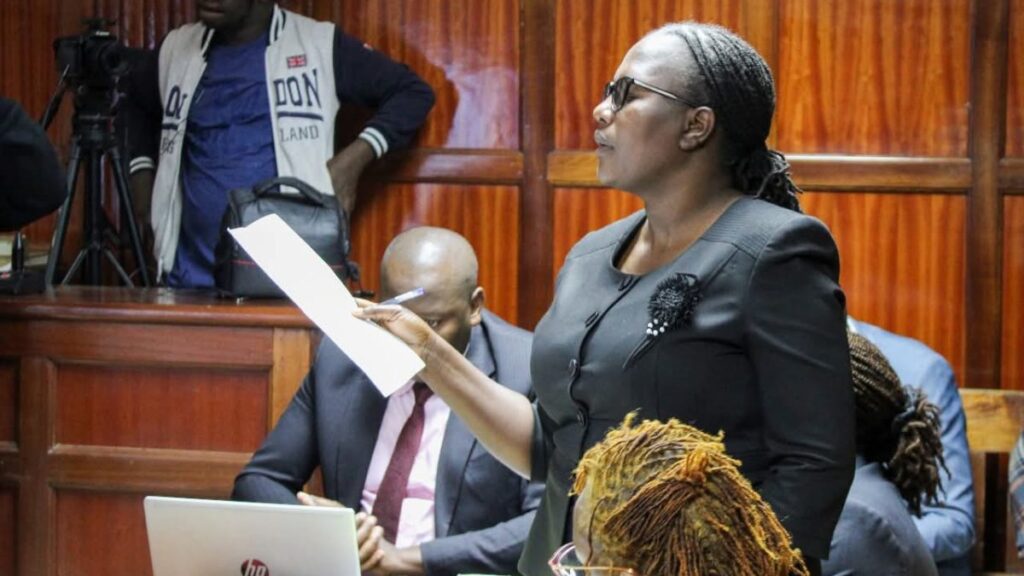Tension briefly erupted at the Milimani High Court after a prosecutor from the Directorate of Public Prosecutions (DPP) was accused of intimidating a journalist covering the ongoing Starlet Wahu murder trial. The incident occurred during a short break in the proceedings after a CCTV expert had testified before Justice Alexander Muteti.
According to accounts from those present, the confrontation began when a journalist approached the CCTV expert to request still photos from footage that had already been displayed in open court. The expert’s attempt to communicate this request to the prosecutor allegedly triggered an angry outburst.
The prosecutor reportedly shouted at the expert, warning her not to share any exhibits with members of the press and expressing disdain for journalists. She accused the media of misreporting cases and claimed that reporters avoided certain courts due to their dislike of judicial officers. Her remarks, delivered in a raised tone, left several people in the courtroom visibly shocked.
When the hearing resumed, the next witness, a security guard at Solace Apartment, testified that he had seen the main suspect in the case leaving the Papino apartment on the night of the incident. Despite the trial moving forward, the tension in the courtroom persisted.
As the journalist attempted to take a photograph of the witness, the prosecutor once again interrupted the proceedings, objecting to the use of a mobile phone camera. She instructed the journalist to “get the right gadgets,” a comment many interpreted as an effort to publicly humiliate and obstruct legitimate reporting.
Legal observers have since noted that mobile phones are recognised as valid tools for journalism under the Media Council of Kenya’s guidelines, especially for photography and data collection in courtrooms where media coverage is permitted.
The incident has reignited debate on the strained relationship between journalists and some officers of the court. Media professionals argue that such confrontations not only undermine press freedom but also erode public confidence in judicial transparency.
Calls have been made for disciplinary action against officials who obstruct or intimidate reporters performing their duties. Advocates of media freedom emphasize that open court proceedings are a cornerstone of justice and that journalists have a right to inform the public without fear of harassment or interference.

